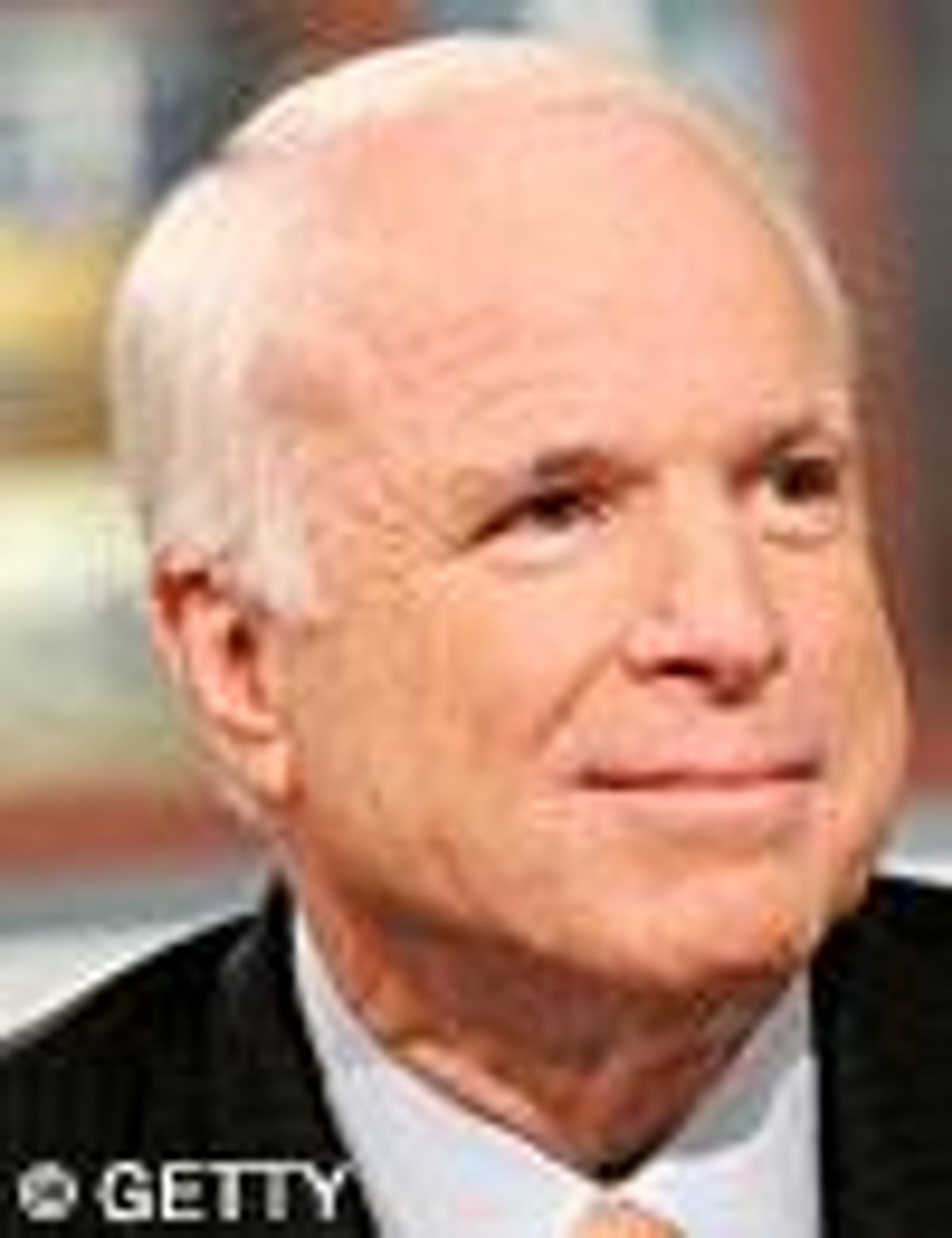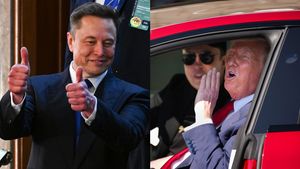Republican John
McCain--senator, ex-Navy pilot and former
prisoner of war in Vietnam--is casting himself
as the most qualified person to lead the country in
wartime as he officially opens his second presidential bid
in Portsmouth, N.H., today and tries to succeed
where he once failed.
''We face
formidable challenges, but I'm not afraid of them. I'm
prepared for them,'' McCain said in prepared remarks.
''I'm not the
youngest candidate. But I am the most experienced,'' added
the 70-year-old, stressing wisdom acquired over time rather
than the decades themselves. ''I know how to fight and
how to make peace. I know who I am and what I want to
do.''
The four-term
Arizona senator, who could be the oldest first-term
president, was formally declaring his 2008 candidacy in a
speech Wednesday, seven years after losing the GOP
nomination to George W. Bush.
The announcement
was not a surprise; his intentions have long been clear,
and he has spent months campaigning in Iowa, New Hampshire,
South Carolina, and elsewhere.
Thus, McCain was
largely using the speech and a four-day romp through
early primary states and his Arizona home to make the case
for his candidacy, outline his vision for the country,
and promise ''commonsense, conservative, and
comprehensive solutions'' to the nation's problems.
The high-profile
events also give McCain an opportunity to restart his
campaign and inject momentum into it after a troubling
four-month period. He went from presumed front-runner
for the GOP nomination at year's end to trailing
former New York City mayor Rudy Giuliani in national polls
and ex-governor Mitt Romney of Massachusetts in money
raised.
At the same time,
McCain, a critic of how the Iraq war has
been waged, became perhaps forever linked to it when he
became the top pitchman for President Bush's
troop-increase strategy earlier this year as overall
support for the four-year-old conflict waned. Faced with
little choice, McCain embraced the war with vigor and staked
his candidacy to its outcome.
Sharpening a
campaign message, McCain is stressing experience and
knowledge honed in war and in Washington as he seeks to
convince voters, particularly conservatives whose
support is critical in the GOP primary, that he's the
best candidate to succeed Bush as the country wages war in
Iraq and fights terrorism worldwide.
''I know how the
military works, what it can do, what it can do better,
and what it should not do. I know how Congress works and how
to make it work for the country and not just the
reelection of its members,'' said McCain, who spent
nearly two dozen years in the Navy--almost six of them
as a prisoner in Vietnam--and two dozen more on
Capitol Hill.
''I know how the
world works. I know the good and the evil in it. I know
how to work with leaders who share our dreams of a freer,
safer, and more prosperous world, and how to stand up
to those who don't,'' he added.
McCain says the
United States must "rethink and rebuild" the structure
and mission of military intelligence sectors and law
enforcement agencies; improve U.S. alliances and strengthen
diplomacy with other nations; "marshal all elements of
American power"; and ''preserve our moral credibility,
and remember that our security and the global progress
of our ideals are inextricably linked.''
More broadly, he
stresses bipartisan solutions to the nation's ills,
saying, ''Much more unites us than divides us. We have
common purposes and common challenges, and we live in
momentous times.''
Suggesting the
country's interests would come before his own political
aspirations, McCain belittles ''half measures and
small-minded politics'' as inadequate and promises to
work with anyone who is sincere about solving the
country's problems.
''When a
compromise consistent with our principles is within reach, I
expect us to seize it,'' McCain added, a subtle suggestion
that he would not be the same type of leader as Bush,
who is known for his stubborn refusal to bend.
He also calls for
curtailing wasteful spending and ending the U.S.
dependence on foreign energy sources.
To formally enter
the race, McCain chose to return to New Hampshire, the
state of his surprising 18-percentage-point upset over Bush
in the 2000 primary. Back then, the senator was a
plucky insurgent seeking to knock off the Texas
governor who had the backing of the GOP establishment.
After trouncing Bush there, McCain lost to him in South
Carolina in a bitter race, and the senator's campaign
never recovered. (Liz Sidoti, AP)














































































